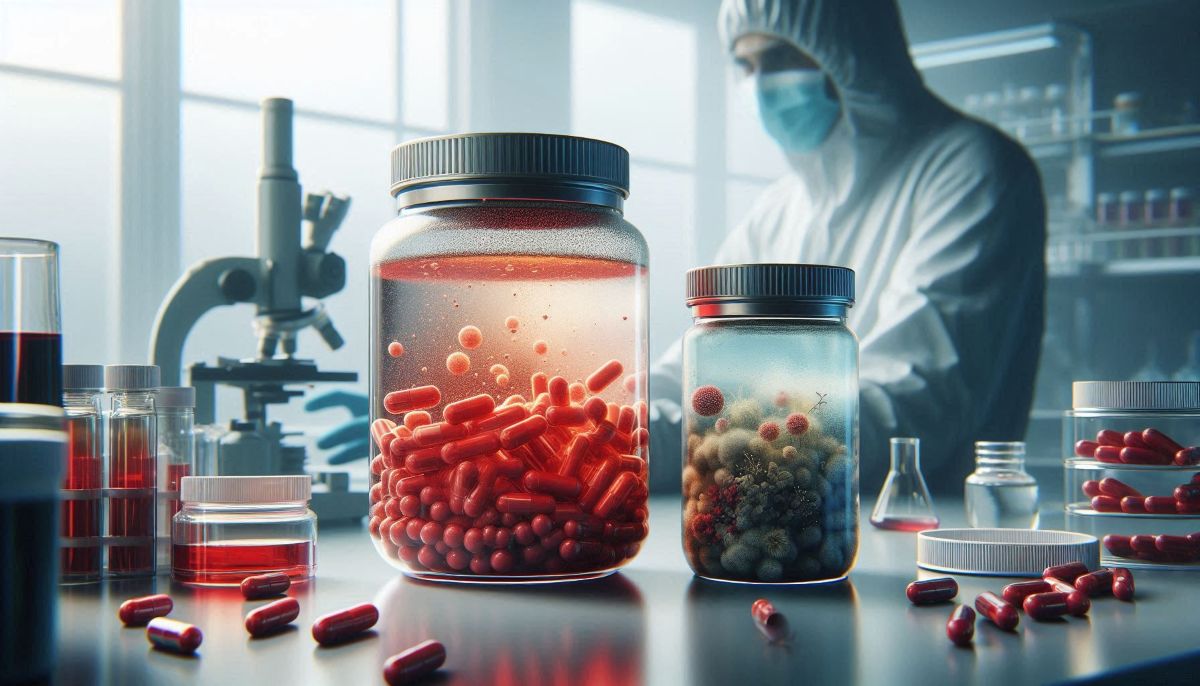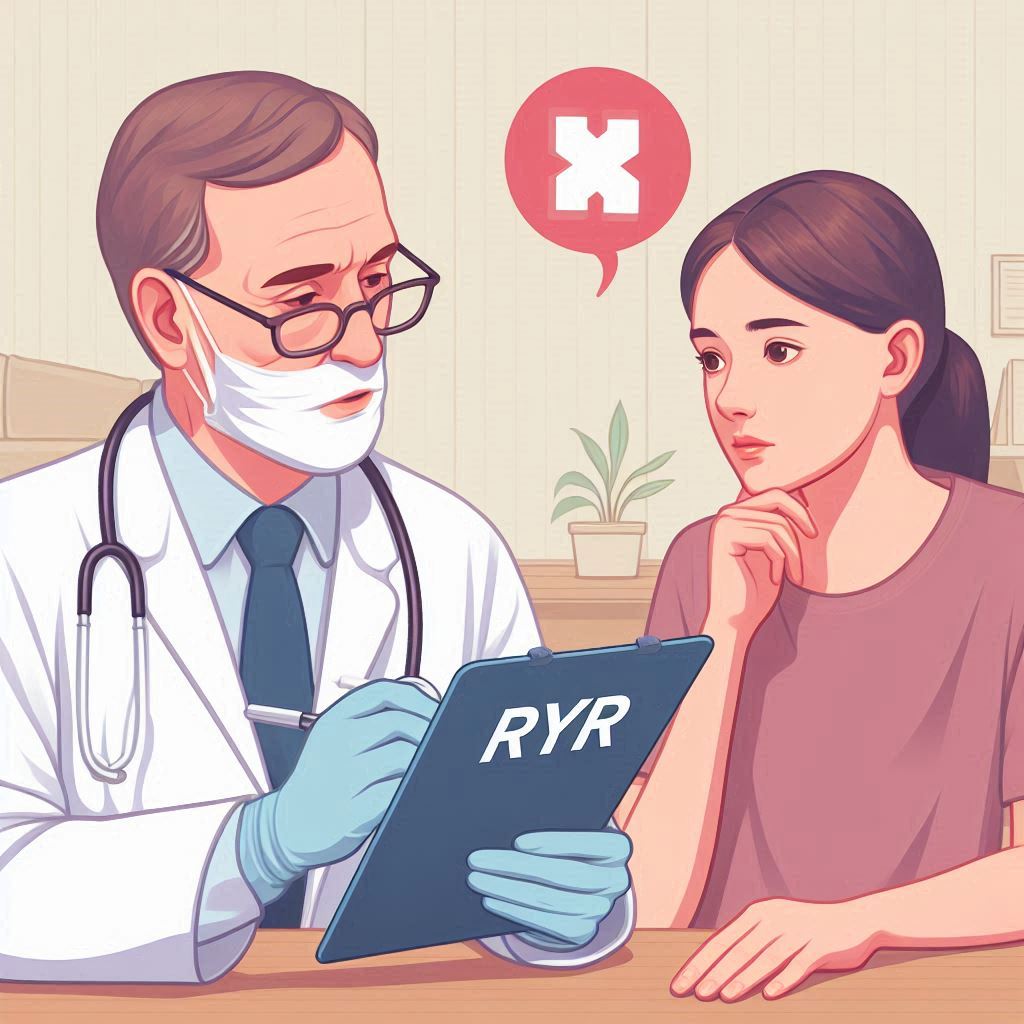
Watch short for this article (5 slides)
Red Yeast Rice Supplements: Natural Cholesterol Aid or Hidden Danger?
Red yeast rice (RYR), a traditional Chinese food product and medicinal ingredient, has gained significant popularity in Western countries as an over-the-counter supplement, often marketed as a "natural" way to manage cholesterol levels. However, recent serious health incidents, particularly involving supplements from Japan's Kobayashi Pharmaceutical, have cast a harsh spotlight on the potential dangers lurking within these seemingly benign products. While RYR's cholesterol-lowering properties are scientifically linked to a naturally occurring compound identical to a prescription drug, the lack of stringent regulation, potential for contamination, and variability in potency create a complex risk profile that consumers must understand. This article provides an in-depth look at red yeast rice, its mechanisms, the significant safety concerns, regulatory complexities, and guidance for navigating its use.

What is Red Yeast Rice? The Science Behind the Fermentation
Red yeast rice is produced by fermenting steamed white rice with specific strains of a mold, most commonly Monascus purpureus. This fermentation process yields several biologically active compounds, notably a group called monacolins.
- The Key Compound: Monacolin K: One specific compound, monacolin K, is chemically **identical** to lovastatin, the active ingredient in the prescription cholesterol-lowering drug Mevacor®.
- Mechanism of Action: Like lovastatin, monacolin K works by inhibiting HMG-CoA reductase, an enzyme crucial for cholesterol synthesis in the liver. By reducing the liver's cholesterol production, it helps lower levels of total cholesterol and low-density lipoprotein (LDL or "bad") cholesterol in the blood.
- Traditional Uses: For centuries in China, RYR has been used as a food coloring agent (giving Peking duck its characteristic red hue), a flavoring, a food preservative, and in traditional Chinese medicine to support blood circulation, digestion, and spleen health. These traditional uses typically involved consuming the whole fermented rice product in culinary amounts, not concentrated extracts focused solely on monacolin K content.
The Regulatory Paradox: Supplement or Unapproved Drug?
The presence of naturally occurring monacolin K identical to lovastatin places RYR supplements in a unique and often confusing regulatory position, particularly in the United States:
- FDA Stance: The U.S. Food and Drug Administration (FDA) considers RYR products containing more than trace amounts of monacolin K to be unapproved new drugs, not dietary supplements. This is because lovastatin is an approved prescription drug active ingredient.
- Enforcement History: Since the late 1990s, the FDA has taken action against manufacturers selling RYR supplements explicitly promoted for cholesterol reduction and containing significant levels of monacolin K, deeming them illegal drugs. (FDA Q&A on Red Yeast Rice)
- Market Reality: Despite FDA actions, RYR products remain widely available. Some manufacturers attempt to comply by processing the RYR to remove or significantly reduce monacolin K levels, potentially rendering them ineffective for cholesterol lowering. Others may still contain variable, sometimes substantial, amounts of monacolin K, operating in a legal grey area or risking regulatory action. This lack of consistent oversight is a core safety concern.
Unlike prescription statins, which undergo rigorous testing for safety, efficacy, and consistent dosing before approval, dietary supplements like RYR face much less stringent pre-market review under the Dietary Supplement Health and Education Act of 1994 (DSHEA). Manufacturers are primarily responsible for ensuring safety and proper labeling, with the FDA intervening mostly *after* safety issues arise.
Unpacking the Risks: Why RYR Supplements Can Be Dangerous

The potential benefits of RYR for cholesterol management are overshadowed by significant safety concerns stemming directly from its nature and lack of regulation:
1. Inconsistent Potency (Monacolin K Variability)
The amount of monacolin K in RYR supplements can vary dramatically between brands and even between different batches from the same brand. Studies analyzing commercial products have found levels ranging from virtually zero to amounts equivalent to prescription doses of lovastatin.
- Danger of Overdose: Unknowingly consuming high levels of monacolin K can lead to the same side effects as high-dose statin therapy.
- Danger of Ineffectiveness: Products with little or no monacolin K will not effectively lower cholesterol, potentially giving consumers a false sense of treatment.
- Lack of Predictability: This variability makes it impossible for consumers or healthcare providers to determine a safe and effective dose without laboratory analysis of each specific batch.
2. Contamination Risks: Citrinin and Beyond
Improper fermentation during RYR production can lead to the formation of harmful contaminants:
- Citrinin: This is a mycotoxin (a toxin produced by mold) known to be nephrotoxic, meaning it can cause kidney damage and potentially lead to kidney failure. Citrinin can be produced by Monascus species if fermentation conditions aren't carefully controlled. Several RYR products recalled by the FDA in the past were found to contain citrinin. (NIH National Center for Complementary and Integrative Health - Red Yeast Rice)
- Other Potential Contaminants: Depending on manufacturing practices, risks of contamination with heavy metals or other harmful substances cannot be ruled out without rigorous quality control and testing.
3. Statin-Like Side Effects (Muscle and Liver Issues)
Because monacolin K is chemically identical to lovastatin, RYR supplements can cause the same side effects associated with prescription statin drugs:
- Muscle Problems (Myopathy): This can range from mild muscle pain (myalgia) and weakness to, rarely, severe muscle breakdown called rhabdomyolysis, which can release damaging proteins into the bloodstream and cause kidney failure. The risk increases with higher doses (or higher, unknown monacolin K levels in supplements) and certain drug interactions.
- Liver Enzyme Elevation: Statins, and therefore potentially RYR, can cause an increase in liver enzymes. While often mild and reversible, significant elevation can indicate liver stress or damage. Regular liver function tests (LFTs) are typically recommended for individuals taking prescription statins.
- Other Potential Side Effects: Headache, dizziness, gastrointestinal issues (like bloating, gas, or diarrhea) can also occur.
4. Drug Interaction Dangers
RYR supplements can interact dangerously with numerous medications, mirroring the interactions seen with lovastatin:
- CYP3A4 Inhibitors: Drugs that inhibit the CYP3A4 enzyme pathway in the liver can significantly increase blood levels of monacolin K/lovastatin, raising the risk of serious side effects like rhabdomyolysis. Examples include:
- Certain antibiotics (e.g., erythromycin, clarithromycin)
- Certain antifungals (e.g., ketoconazole, itraconazole)
- HIV protease inhibitors
- Grapefruit juice (large quantities)
- Other Lipid-Lowering Drugs: Combining RYR with other cholesterol medications like fibrates (e.g., gemfibrozil) or niacin can increase the risk of muscle problems.
- Warfarin: Potential interactions affecting blood clotting have been reported.
- Other Statins: Taking RYR alongside a prescription statin essentially doubles the dose and significantly increases risk.
Failure to consider these interactions, especially without medical supervision, can have severe consequences.
Spotlight on Safety Failures: The Kobayashi Pharmaceutical Case (2024)
In March 2024, Japan's Kobayashi Pharmaceutical initiated a recall of several RYR-containing supplement products ("beni-koji choleste-help" and others) after reports emerged linking them to serious health problems.
- Outcome: The incident resulted in multiple deaths (primarily due to kidney failure) and over 100 hospitalizations across Japan. (Reuters coverage provides ongoing details)
- Suspected Contaminant: Initial investigations suggested the presence of an unintended, potentially toxic substance derived from mold during the manufacturing process, possibly puberulic acid, although investigations by health authorities are ongoing to definitively identify the causative agent. Citrinin was reportedly not detected in the implicated batches.
- Implications: This tragic event underscores the critical importance of stringent quality control in supplement manufacturing and highlights the potential for unexpected, harmful compounds to arise during fermentation if processes are not meticulously managed and tested. It serves as a stark warning about the risks associated with unregulated or poorly regulated supplements.
Navigating Red Yeast Rice Use: Safety Recommendations

Given the potential risks, approaching RYR supplementation requires extreme caution:
- Prioritize Medical Consultation (CRITICAL): **Never** take RYR supplements without first discussing it thoroughly with your healthcare provider. Be sure to cover:
- Your full medical history (especially liver or kidney disease).
- All medications, supplements, and herbal products you are currently taking to check for interactions.
- Whether cholesterol lowering is necessary and appropriate for you.
- The risks and potential benefits of RYR compared to well-regulated prescription statins.
- The fact that RYR is essentially an unregulated drug.
- Avoid if High-Risk: RYR should generally be avoided by individuals who are pregnant, breastfeeding, have liver disease, kidney disease, or are already taking prescription statin medications or drugs known to interact.
- Choose Products Wisely (With Caveats): If, after medical consultation, you choose to use RYR:
- Look for products certified by independent third-party organizations like USP (U.S. Pharmacopeia), NSF International, or ConsumerLab.com. These seals indicate the product was properly manufactured, contains the ingredients listed on the label, and does not contain harmful levels of specified contaminants (like citrinin or heavy metals).
- **Important Caveat:** Third-party testing typically does *not* standardize or guarantee the amount of monacolin K (due to regulatory issues) and cannot ensure long-term safety or efficacy.
- Be wary of products making explicit cholesterol-lowering claims, as these may be illegally marketed as unapproved drugs.
- Monitor Closely for Side Effects: Be vigilant for potential adverse effects, especially muscle pain, tenderness, weakness, unusual fatigue, dark-colored urine (a sign of rhabdomyolysis), or signs of liver problems (jaundice, abdominal pain). Report any concerning symptoms to your doctor immediately.
- Consider Medical Monitoring: Discuss with your doctor whether regular blood tests to monitor liver function (LFTs) and potentially muscle enzymes (CK levels) are advisable while taking RYR, similar to monitoring for prescription statins.
Red Yeast Rice vs. Prescription Statins: A Comparison
| Feature | Red Yeast Rice Supplements | Prescription Statins (e.g., Lovastatin) |
|---|---|---|
| Regulation | Dietary Supplement (minimal pre-market oversight by FDA; state varies) | Prescription Drug (rigorous FDA pre-market approval for safety, efficacy, manufacturing) |
| Active Ingredient Standardization | Highly variable or absent (monacolin K); not guaranteed | Precise, standardized dose guaranteed per pill |
| Contaminant Risk (e.g., Citrinin) | Potential risk due to variable manufacturing quality control | Minimal risk due to strict pharmaceutical manufacturing standards (cGMP) |
| Known Safety Profile | Limited long-term data; potential for unknown risks/contaminants; known statin-like side effects | Extensive long-term safety data from large clinical trials; known side effect profile |
| Evidence for Efficacy | Evidence exists, but variability makes outcomes unpredictable | Proven effective in numerous large-scale clinical trials for lowering cholesterol and reducing cardiovascular events |
| Medical Supervision | Not required for purchase, but strongly advised due to risks | Requires prescription and ongoing medical supervision |
Conclusion: Balancing Potential Benefits with Significant Risks
Red yeast rice contains naturally occurring monacolin K, a substance identical to the prescription drug lovastatin, which can effectively lower cholesterol. However, its status as a dietary supplement means it largely escapes the rigorous regulatory scrutiny applied to pharmaceuticals. This leads to significant risks from inconsistent potency, potential contamination with harmful substances like citrinin (or other unexpected toxins as seen in the Kobayashi case), and the same side effects and drug interactions associated with statins, but without predictable dosing or guaranteed quality control. While RYR may seem like a "natural" alternative, the potential for harm is real and significant. Anyone considering red yeast rice supplements must prioritize a discussion with their healthcare provider to weigh the substantial risks against any potential benefits, especially in light of safer, standardized, and well-studied prescription options available for cholesterol management.